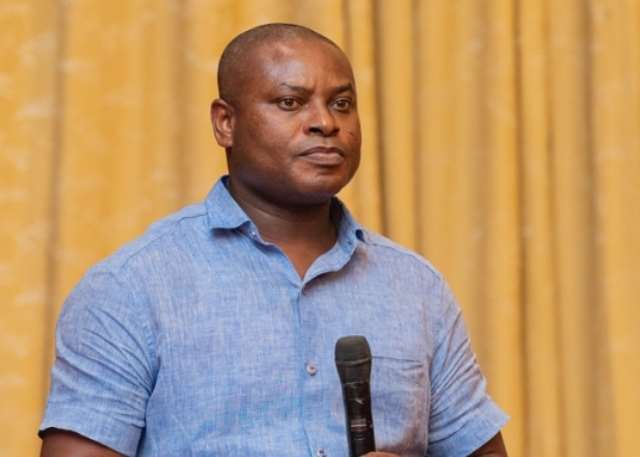Richard Ahiagbah, the Director of Communications for the New Patriotic Party (NPP), has sharply criticized the National Democratic Congress (NDC) for its proposed 24-hour economy policy, specifically concerning the operation of banks around the clock. In a post shared on X, Ahiagbah questioned the practicality of such an initiative, arguing that modern banking mechanisms, including Automated Teller Machines (ATMs), online banking services, and Mobile Money (MoMo), already provide consumers with 24/7 access to their financial needs. He highlighted the evolving nature of banking in Ghana, where technological innovations are increasingly meeting consumer demands outside traditional banking hours.
Ahiagbah pointed out that as financial technologies advance, the necessity for physical banking halls is diminishing. The traditional model of banking where customers had to visit a physical branch during limited hours is becoming obsolete due to the convenience and efficiency of digital solutions. He praised advancements made under Vice President Dr. Mahamudu Bawumia, particularly in MoMo transactions and financial interoperability, which has ensured a seamless availability of services for users at all times. This underlines Ahiagbah’s view that the focus should be on enhancing digital platforms rather than reverting to older banking frameworks.
Additionally, Ahiagbah raised concerns regarding whether the NDC had consulted with banking institutions before proposing such a policy. He implied that banks may be hesitant to implement a 24-hour operational structure, especially when contemporary technologies already suffice to meet consumer needs effectively. This skepticism about the feasibility of the NDC’s proposal reflects a broader sentiment that the party may not fully grasp the current banking landscape in Ghana.
Describing the NDC’s proposal as a “reset to the Stone Age,” Ahiagbah contrasted it sharply with Dr. Bawumia’s vision of a future driven by advancements in artificial intelligence, big data, and the Internet of Things. He suggested that the NPP’s approach is more aligned with contemporary technological possibilities and the needs of modern Ghana. This comparison underscores Ahiagbah’s belief that the NDC’s ideas are not only outdated but fail to recognize the transformative potential of technology in the banking sector.
Furthermore, Ahiagbah’s comments highlight a significant ideological divide between the two political parties regarding how to approach modernization in the banking and economic sectors. The NPP’s focus on digital banking innovation points towards a progressive vision for Ghana’s economy, while the NDC’s proposal seems to suggest a regression to outdated systems that do not leverage the advancements achieved in recent years.
In conclusion, Ahiagbah’s critique of the NDC’s banking policy reflects a broader conversation about the future of banking services in Ghana. By advocating for the continued development of digital banking solutions and questioning the feasibility and necessity of a 24-hour banking operation, he emphasizes the importance of adapting to technological advancements rather than reverting to less efficient, traditional methods. This dialogue is crucial for shaping the banking landscape and economic strategies as Ghana continues to evolve in the digital age.














